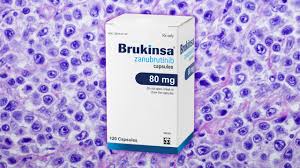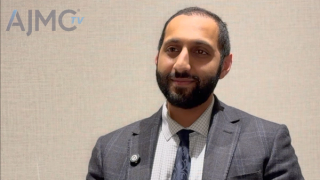
Clinical
Latest News
Video Series

Latest Videos
Shorts










Podcasts
CME Content
More News

Ateequllah Hayat, PhD, discusses epigenetic rewiring, biomarkers, and emerging strategies to overcome lapatinib resistance in HER2+ breast cancer.

Real-world inotuzumab ozogamicin boosts remission in relapsed/refractory B-cell ALL, supports transplant, and flags sinusoidal obstruction syndrome risk.

Telomere length and polygenic risk independently influence IPF susceptibility, even among patients without rare genetic variants.

Maui Derm 2026 showcased groundbreaking advancements in dermatology, focusing on biologics, innovative treatments, and future technologies for skin health.

Glaucoma is a leading cause of blindness in the US, making awareness of the condition vital to obtaining the best outcomes.

Patients with mantle cell lymphoma experience improved quality of life and physical functioning after treatment with pirtobrutinib, a BTK inhibitor.

These findings suggest the mental health burden in nonmelanoma skin cancer reflects broader social and clinical factors rather than disease-specific effects.

Tildrakizumab at 100-mg and 200-mg doses showed long-term effectiveness for managing psoriasis in challenging areas in a real-world study.

Discover how innovations in biology and engineering are transforming dermatology, featuring breakthroughs in laser therapies and precision medicine.


Vivian Shi, MD, discusses the evolving strategies for managing hidradenitis suppurativa, including biologics and combination therapies, at Maui Derm 2026.

The future of treating glaucoma relies on ophthalmologists and optometrists personalizing therapy to their patient, says Manjool Shah, MD.

Data at ASH 2025 highlighted that standardized workflows, education, monitoring innovations, and collaboration are steadily enabling broader, safer adoption of bispecific antibodies in community oncology practice.

ASH 2025 immunotherapy data highlight the importance of treatment sequencing, real-world outcomes in high-risk populations, and the growing need to define when therapy can be safely de-escalated or stopped in multiple myeloma.

ASH 2025 data on KLN-1010 suggest that off-the-shelf, in vivo CAR T therapy could significantly expand access to cellular therapy in multiple myeloma by reducing manufacturing, treatment delays, and logistical barriers, provided toxicity remains manageable.

ASH 2025 data emphasize that standardized protocols and strong academic-community communication are essential for safe and consistent management of bispecific antibody adverse events in community oncology.

A Maui Derm 2026 session explored advancements in pediatric dermatology, emphasizing precision medicine and targeted therapies for children.

Speakers delved into innovative strategies in skin tumor management, focusing on chemotherapies, patient risk assessment, and evolving treatment protocols.

LLMs provide valuable answers to common Mohs surgery questions, supporting postoperative care and patient education without replacing physician guidance.

Explore the significance of patient-reported outcomes in cancer treatment, highlighting the benefits of zongertinib and its impact on quality of life.

Explore how evolving treatment strategies and biomarkers are transforming the management of HER2-positive breast cancer in clinical practice.

Dr. Hirsch discusses the promising efficacy and safety of cevertinib for HER2-mutant non-small cell lung cancer, highlighting its potential as a first-line treatment.

It seems there is no text provided for summarization. Please share the content you'd like summarized, and I'll be happy to help!

Experts discuss groundbreaking therapies in dermatology at Maui Derm 2026, addressing complex skin diseases and enhancing patient care with innovative treatments.

Explore the promising results of the REDIRECT trial, combining bispecific therapies for treating relapsed/refractory myeloma with high response rates.





















